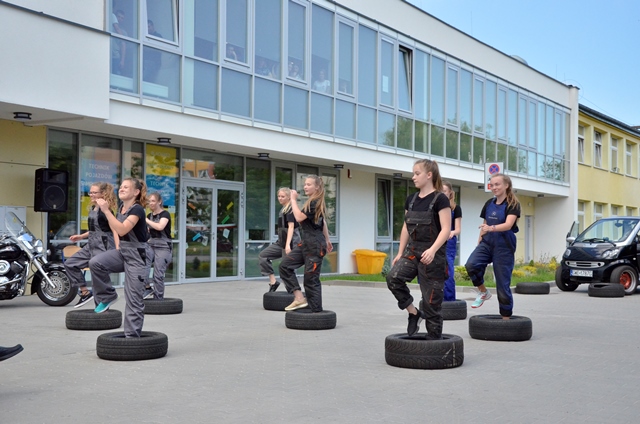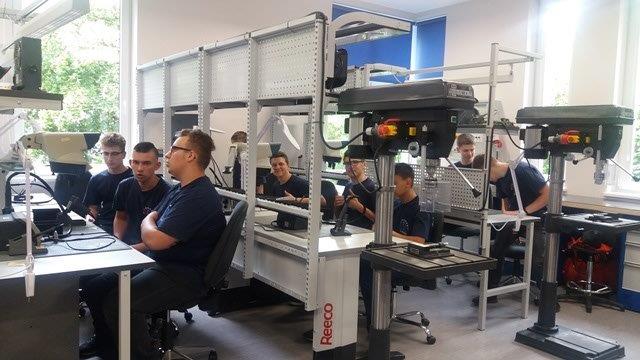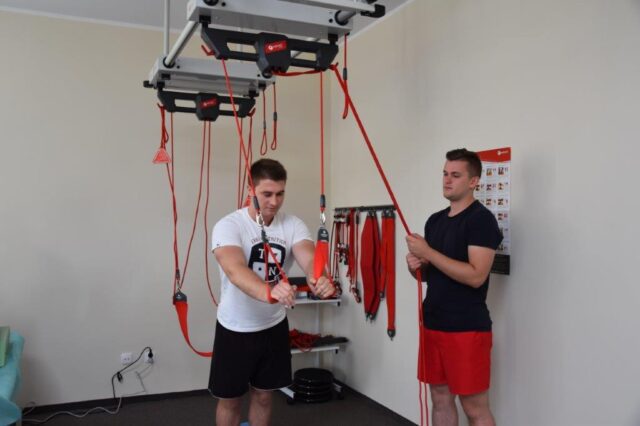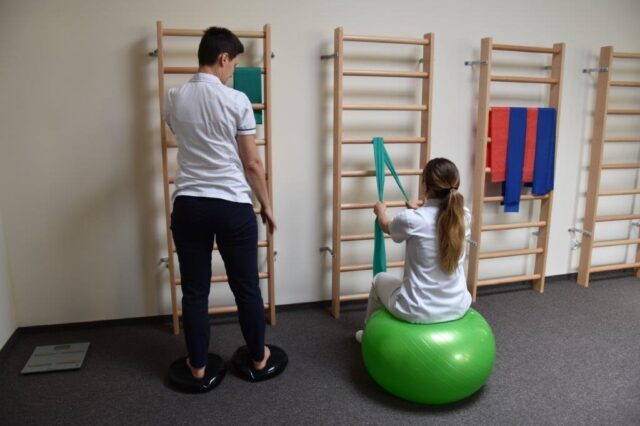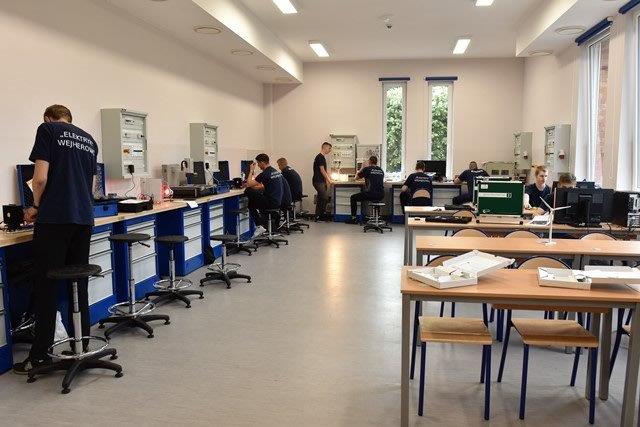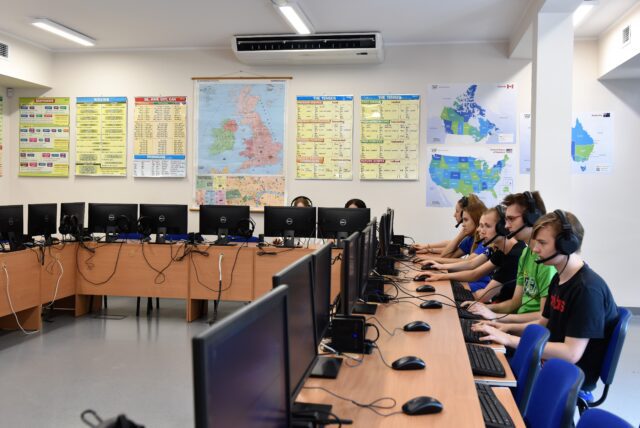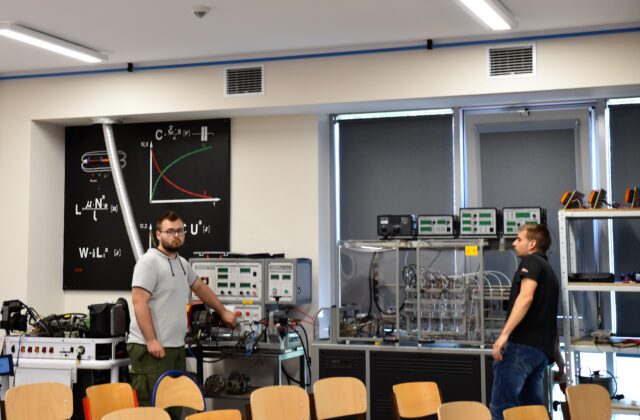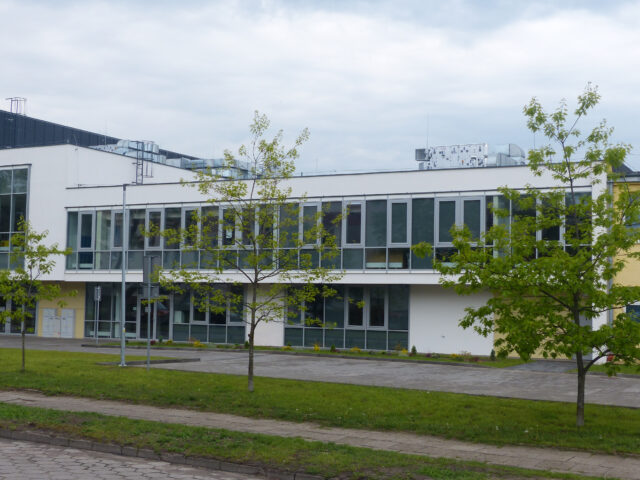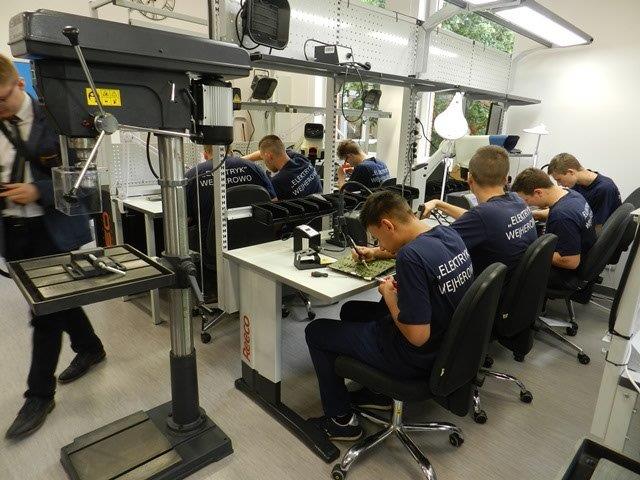Integrated development of public vocational training in the Wejherowo District
Project Information
| Project Title | Integrated development of vocational education in the Wejherowski poviat by expanding and retrofitting the services of upper secondary and upper secondary education |
|---|---|
| Beneficiary | The Wejherowo District |
| Program | Regional Operational Programme of the Pomorskie Voivodeship for the years 2014-2020 |
| EU Funding Source | European Fund for Regional Development |
| Realization Place | The Wejherowo District |
| Overall Value | 19 288 403,66 PLN |
| EU Funding | 16 134 170,28 PLN |
Project Description
The project concerns integrated development of public vocational training in the Wejherowo District in the area of selected key industries through expansion of 5 schools: PZS No. 2 in Wejherowo, PZS No. 3 in Wejherowo, PZS No. 4 in Wejherowo, PZS No. 2 in Rumia and PZSP in Wejherowo as well as providing FF&E and retrofitting 36 workshops of vocational training in the expanded schools. The desired outcome of these initiatives is improving of quality of vocational education in the District; strengthening the attractiveness of the district vocational schools; adapting the vocational training option in the Wejherowo District to meet the needs of the employers and the specificity of the local, subregional and regional labour market; raising the quality and standardisation of the educational materials for theoretical and practical vocational training, increasing employability and the chances of graduates from the district vocational schools students for success in the job market; as well as goal-oriented integrated development of the public vocational training in the District.
Description of the project scope and of the stipulated initiatives
The project implementation will comprise following stages: preparatory work: development of technical documentation, architectural concept and Implementation-and construction plans and a Feasibility Study. At the project implementation stage: construction and installation work as well as providing FF&E and purchase of equipment. Construction work will include: expansion of PZS No. 2 in Wejherowo by adding a complex of 7 vocational workshops for 175 students, expansion of PZS No. 3 in Wejherowo by means of adding another floor with 4 vocational workshops and a staircase, for 110 students; expansion of PZS No. 4 in Wejherowo by adding a complex of 6 vocational workshops for 155 students; expansion of PZS No. 2 in Rumia by adding a complex of 5 vocational workshops together with a skywalk for 130 students as well as expansion of PZSP in Wejherowo by adding a pavilion with rehabilitation and corrective facilities, equipped with sanitary and social amenities and a staircase for 41 students. Providing FF&E and equipment purchase will include retrofitting of 36 workshops for 28 vocations, including: retrofitting of 4 existing ones and providing FF&E of 7 new workshops for 4 vocations of the ICT industry and electronics as well as 6 vocations from the Energy and Eco-energy generation industry at the PZS No. 2 in Wejherowo; retrofitting of 1 and providing FF&E of 3 workshops for 5 vocations from the Tourism, sports and recreation industry at the PZS No. 3 in Wejherowo; retrofitting of 1 and providing FF&E of 6 workshops for 6 vocations in the Transport, logistics and automotive industry, with regard to automotive industry – at the PZS No. 4 in Wejherowo; providing FF&E of 5 new workshops for 2 vocations in the Transport, logistics and automotive industry with regard to transport and logistics at the PZS No. 2 in Rumia as well as retrofitting of 7 and providing FF&E of 2 workshops for 5 vocations in the Health and the Silver economy in PZSP in Wejherowo. Moreover, there will be following initiative stages: Investor’s supervision, Project Management and Project promotion. For the purpose of management The Applicant will appoint a team of 5 persons and 2 interim specialists. In terms of Project promotion provisions were made to supply 5 schools and the Applicant with: 6 information boards 12 memorial boards, 36 door signs for the workshops, 6 roll-ups, 1 industry publication describing and promoting the public educational initiative offered by the District in terms of vocational training, standardised during the Project (circulation 500 copies) and media publications. As part of the project rational and economically sound technical solutions were adopted of expansion with added adaptations that enable access for people with disabilities, including: building construction, installation of sanitation and electrical utilities with the required PCC’s and development of the surrounding area as well as group orders of equipment and FF&E in the areas of the relevant industries under the public procurement procedure. The product of the Project will be assistance provided to 5 entities of vocational education infrastructure and its potential in terms of educational infrastructure 2494, and the result is the 611 students who annually utilise the entities of vocational education infrastructure which benefitted from the assistance. The scope of the Project and of the planned initiatives is in agreement with the scope of strategic Enterprise ” Development of a network of secondary vocational schools taking into account the needs of the sub-regional and regional labour market”.
The project concerns integrated development of public vocational training in the Wejherowo District. This outcome will be reached through the implementation of specific objectives: expansion and retrofitting of schools. In terms of expansion the aim of the Project is building expansion of 5 schools, incl.: expansion of PZS No. 2 in Wejherowo by adding a complex of 7 vocational workshops; PZS No. 3 in Wejherowo by means of adding another floor with 4 vocational workshops and a staircase; PZS No. 4 in Wejherowo by adding a complex of 6 vocational workshops; PZS No. 2 in Rumia by adding a complex of 5 vocational workshops with a skywalk as well as PZSP in Wejherowo by adding a pavilion with rehabilitation and corrective facilities, equipped with sanitary and social amenities and a staircase.
In terms of retrofitting, the aim of the Project is retrofitting of 36 workshops, including: retrofitting of 4 existing ones and providing FF&E of 7 new workshops of the ICT industry and electronics as well as Energy and Eco-energy generation industry at the PZS No. 2 in Wejherowo; retrofitting of 1 and providing FF&E of 3 workshops in the Tourism, sports and recreation industry at the PZS No. 3 in Wejherowo; retrofitting of 1 and providing FF&E of 6 workshops in the Transport, logistics and automotive industry with regard to automotive industry at PZS No. 4 in Wejherowo; providing FF&E of 5 new workshops in the Transport, logistics and automotive industry with regard to transport and logistics at PZS No. 2 in Rumia as well as retrofitting of 7 and providing FF&E of 2 workshops in the Health industry and the Silver economy at the PZSP in Wejherowo.
Achieving the specific objectives will allow to reach the desired expected Project outcomes: an integrated development through the expansion and equipping of public schools of vocational training operated by the District. This will also facilitate achieving the projected results: widening the range of supply of educational materials through expansion of 5 schools and retrofitting of 36 vocational training workshops which were unsuitable in terms of their architectural design to meet the current needs of vocational education, both in theoretical and practical terms as well as in terms of gender and disabled persons accessibility. An additional outcome of the Project will be creation of 13 new full time jobs. The direct project outcome will be the 611 students using the infrastructure of the vocational training entities under assistance.
The project performance measures, which generate lasting economic and social benefits will be as follows: raising the quality of public vocational education; increase in attractiveness of district vocational schools; adapting the vocational schools educational offer to expectations of the employers and the local, subregional and regional labour market conditions; increase and standardisation of the educational materials and equipment of both theoretical and practical vocational training; increase in employability and chances for future success in the labour market of the district vocational schools graduates.



